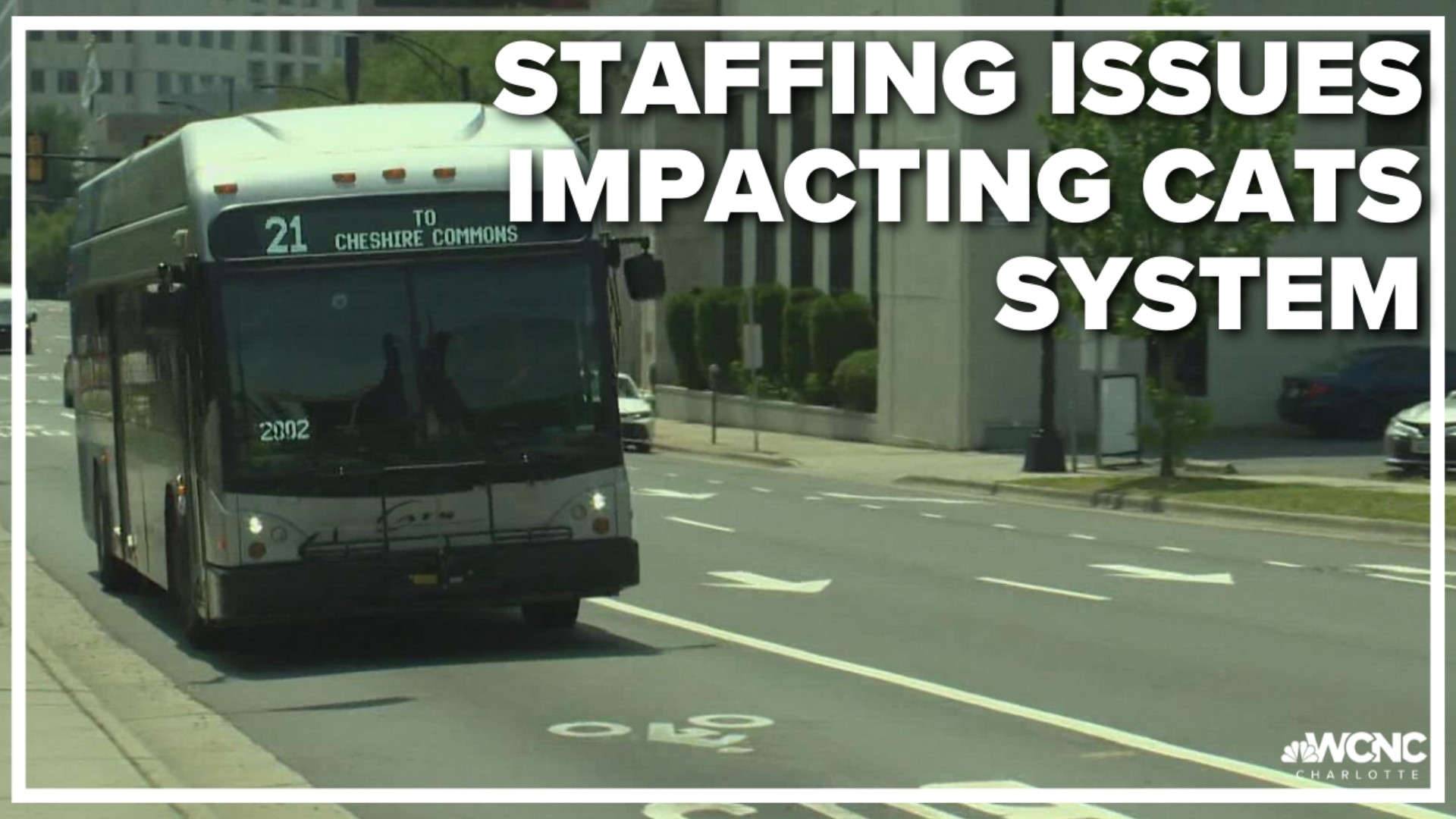CHARLOTTE, N.C. — Where are all the workers? That’s the big question. The Charlotte Area Transit System (CATS) is having some major staffing issues with dozens of positions to fill an issue many businesses are facing.
The agency reported 95 bus operators absent from work Tuesday. On Monday 88 people were out. A spokesperson with CATS said these numbers reflect unplanned absences and bus riders should expect delays on routes.
“It’s frustrating," Laela, a bus rider, said. "Some people have to get to work and they have to call their managers and tell them they are going to be late."
She takes the bus to work and sometimes waits anywhere from 20 to 40 minutes for a bus to come. There are times when the bus doesn’t show up at all.
“I drop my kids off at daycare using the park and ride system too and he has to go here downtown and I have to get him to school on time,” she explained. “Sometimes if I’m late they won’t accept him.”
The agency is facing challenges in hiring new bus drivers.
As of June 22, CATS has 74 bus operator vacancies and said it is working to address the labor shortage.
Michael L. Walden is a William Neal Reynolds distinguished professor and extension economist at North Carolina State University. He said some industries are having a tougher time recovering than others.
“We're seeing that statistically, the industries that are suffering right now still from a major labor shortage are those who tend to be at the lower end of the wage scale; restaurants, hospitality, transportation and construction,” Walden said.
He added that the labor force is down 50,000 to 60,000 workers compared to pre-pandemic. Although the numbers are going down, people are not necessarily going back to the jobs they had. That's because many people have gotten more skills or education, for example.
“More importantly, we've had a labor reallocation," he said. "That's something that those industries that are struggling to find workers are going to have to cope with because that's not necessarily going to go away."
Impacted customers and consumers believe not enough is being done in the meantime.
“We know that there is a shortage and there’s nothing anyone can do about it,” Laela said. “There is a shortage everywhere but I just wish I was warned so that I could make a plan to get an earlier bus or drive my car.”
The labor shortage has some businesses taking a deeper look at their operations.
“Quite frankly, what some public transportation systems may have to do is reevaluate their routes, and maybe eliminate routes that aren't used as much and focus on those that are more used," Walden said.
This may be an opportunity to tap into another population – retired folks.
“If I were advising public transportation,” Walden said, “I would advise them to maybe look to get workers from that over age 55 category.”
With more jobs to fill than workers, businesses need attractive packages to hire new talent.
“We have been in a situation where the competition, if you will, between workers, and employers really had been favored were really has been favoring the workers," Walden said. "So we've seen that in terms of higher wages and benefits."
CATS is looking at job fairs, recruitment tactics, and hiring campaigns to get more bus operators hired. There are also talks about raising the wages and four-day schedules to make the positions more attractive.
Walden's forecast is that the labor market will slowly return to some sense of normalcy but some businesses may have a long road to recovery.
Contact Shamarria Morrison at smorrison@wcnc.com and follow her on Facebook, Twitter and Instagram.

